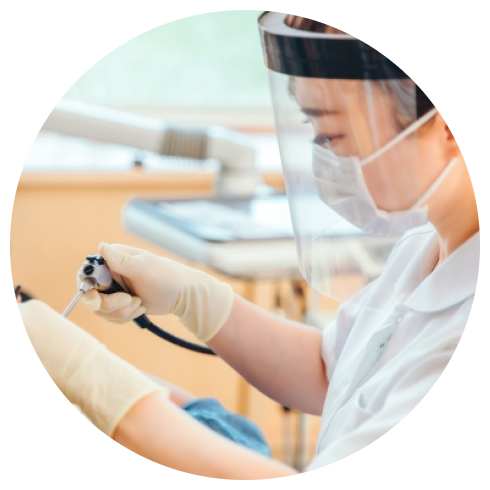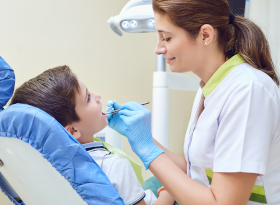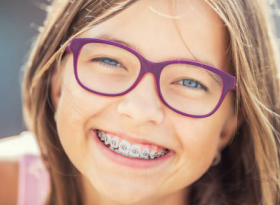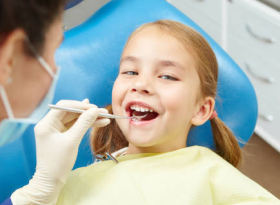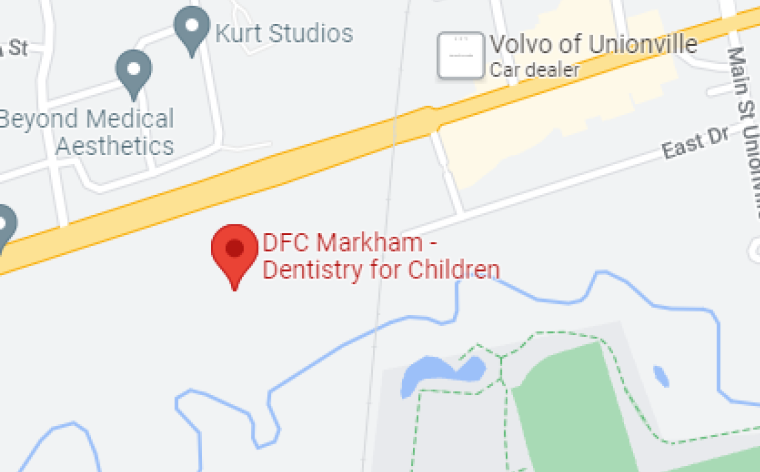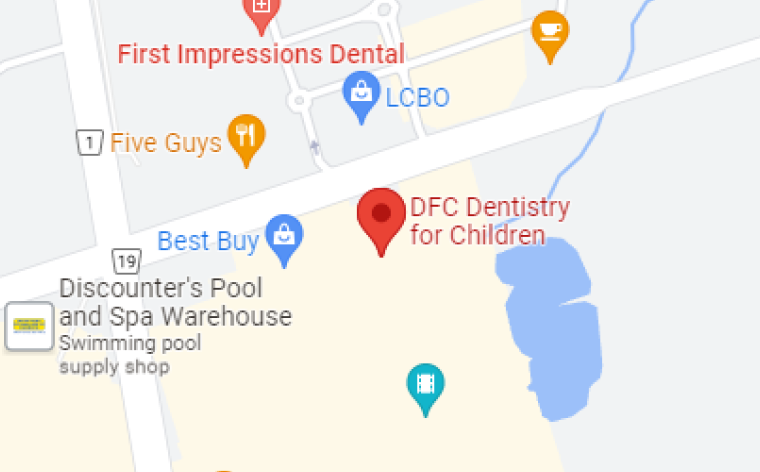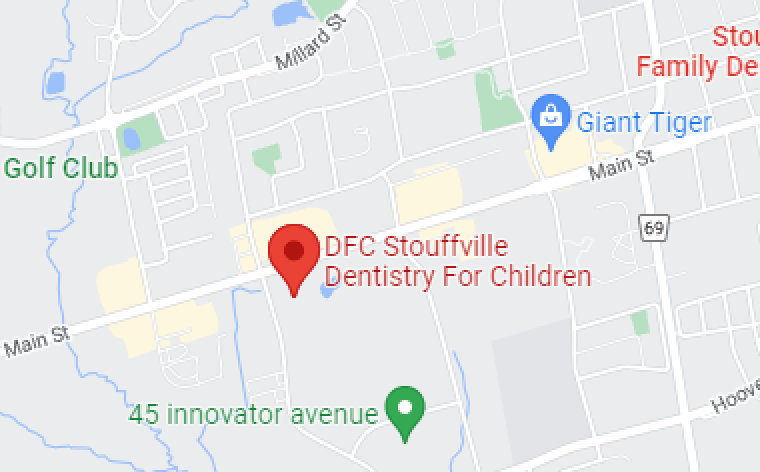We recommend that you make an appointment to see the dentist as soon as your child gets his or her first tooth. The Canadian Dental Association recommends that a child is seen either by six months after his or her first tooth erupts, or when they turn one – whichever comes first.
All dental specialists (paediatric dentists, orthodontists, oral surgeons, and others) begin by completing dental school, then continue their education with several years of additional, specialized training. During training in the field of paediatric dentistry, your doctor gained extensive knowledge and experience in treating infants, children, and adolescents. Paediatric dentists enjoy working with children, and bring to each patient our expertise in childhood development and behaviour. Because our office is geared toward young visitors, you’ll find that our staff, as well as our office design, decorations and activities, all work together to provide an especially friendly and comfortable environment for children.
The first visit is usually short and simple. In most cases, we focus on getting to know your child and giving you some basic information about dental care. The doctor will check your child’s teeth for placement and health, and look for any potential problems with the gums and jaw. If necessary, we may do a bit of cleaning. We will also answer any questions you have about how to care for your child’s teeth as they develop, and provide you with materials containing helpful tips that you can refer to at home.
The best preparation for your child’s first visit to our office is maintaining a positive attitude. Children pick up on adults’ apprehensions and if you make negative comments about trips to the dentist, you can be sure that your child will fear an unpleasant experience and act accordingly. Show your child the pictures of the office and staff on the website. Let your child know that it’s important to keep his teeth and gums healthy, and that the doctor will help him do that.
We generally recommend scheduling checkups every six months. Depending on the circumstances of your child’s oral health, we may recommend more frequent visits.
Although they don’t last as long as permanent teeth, your child’s first teeth play an important role in his development. While they’re in place, these primary teeth help your little one speak, smile and chew properly. They also hold space in the jaw for permanent teeth. If a child loses a tooth too early (due to damage or decay) nearby teeth may encroach on that space, which can result in crooked or misplaced permanent teeth. Also, your child’s general health is affected by the oral health of the teeth and gums.
Even before your baby’s first tooth appears, we recommend you clean his or her gums after feedings with a damp, soft washcloth. As soon as the first tooth appears, you can start using a toothbrush. Choose a toothbrush with soft bristles and a small head. You can most likely find a toothbrush designed for infants at your local drugstore.
Once your child has a few teeth, you can start using toothpaste on the brush. Use only a tiny amount for each cleaning, and be sure to choose toothpaste without fluoride for children under two, as too much fluoride can be dangerous for very young children. Always have your child rinse and spit out toothpaste after brushing, to begin a lifelong habit he’ll need when he graduates to fluoride toothpaste. Children naturally want to swallow toothpaste after brushing, and swallowing too much fluoride toothpaste can cause teeth to stain. You should brush your child’s teeth for him until he is ready to take on that responsibility himself, which usually happens by age six or seven.
